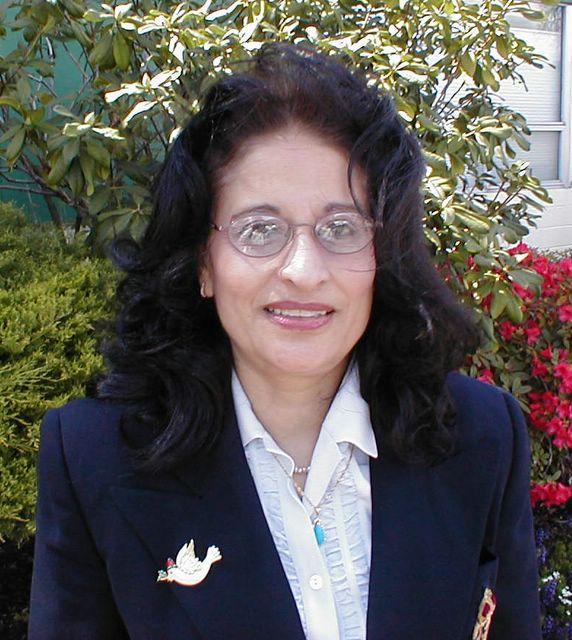Legal aid funding bill sails through House, raises ire of business groups
http://www.oregonlive.com/politics/index.ssf/2014/02/legal_aid_funding_bill_sails_t.html#comments
Facing a crisis of unmet demand, Oregon's legal aid groups are hoping a bill that passed the Oregon House Monday will help them better serve the fast-expanding ranks of the Oregon's poor.
The fine points of HB 4143 and the legal aid endowment fund it would create were nearly lost this week in sudden heated opposition from business groups and high-powered attorneys like former Attorney General David Frohnmayer.
Millions of dollars are at stake. Oregon is currently one of just two states in the country that sends uncollected class-action proceeds back to the defendant. Historically, that has meant defendant corporations even when they lost or settled a class action could count on recovering as much as 50 percent of the award simply because not enough members of the class bothered to file claims.
That practice would end under HB 4143. Instead, the money would go into the endowment fund generating interest income for the legal aid fund.
The bill would apply retroactively to class-action lawsuits currently in progress. That may help explain why prominent Eugene lawyers Frohnmayer and Bill Gary sent a letter to Legislators calling the bill "unconstitutional, unfair and fundamentally unworkable.
Frohnmayer and Gary represent tobacco giant Philip Morris in an ongoing class-action suit. Were the bill to pass and Philip Morris lose or settle its case, the tobacco giant would no longer be able to pocket uncollected damages.
HB 4143 was approved handily by the Oregon House on Monday and now awaits attention in the Senate. The Senate Judiciary Committee will consider the bill on Thursday.
Legal aid lawyers provide representation on civil matters to Oregonians who earn 125 percent or less of the federal poverty guideline. In 2013, that amounted to $14,362 for an individual and $29,673 for a family of four.
Since 2000, legal aid officials say, the number of eligible Oregonians has increased by 62 percent while the number of legal aid lawyers has actually dropped from 92 to 90.
"There's just been a huge increase in need," said Judith Baker, director of legal services for the Oregon State Bar. "When the recession hit, so many people suddenly fell into this category."
Funding cuts and the historically low interest rates has hurt legal aid funding. Interest on lawyer trust accounts has traditionally funded legal aid.
There are four legal aid non-profits operating in Oregon: Legal Aid Services of Oregon and the Oregon Law Center, both in the Portland metro area, and the Lane County Law and Advocacy Center in Eugene and the Center for Non-Profit Legal Services in Jackson County.
"We have funding to meet less than 15 percent of the civil legal needs of the poor in Oregon," said Sandra Hansberger, executive director of the Campaign for Equal Justice. Oregon State Bar officials estimate the state's legal aid programs serve 22,000 Oregonians a year either through direct representation, self-help classes or other services.
Rep. Tobias Read, D-Beaverton, one of the bill's sponsors, said it's high time Oregon ends its status as one of only two states in the country that returns unclaimed class-action proceeds back to the defendant corporation. "We've got a situation where the company judged to be guilty of widespread wrongdoing is potentially not paying what they were judged to owe," Read said. "I don't think that's fair. We need to hold people accountable."
Read noted that former Attorney General Hardy Myers and others have championed similar legislation in the past.
In their letter, Frohnmayer and Gary, his long-time deputy, opined the bill violates due process and Oregon's constitution. "The bill authorizes unconstitutional procedures, is unfair to class members and to defendants, and is fundamentally unworkable," they wrote.
Nowhere in their letter do Frohnmayer and Gary disclose their representation of Phillip Morris or the pending class-action suit against the company. When asked about the omission, Gary said: "I don't know the form in which the materials we prepared were shared with the legislature, so I don 't know specifically what was said about our representation. We are working with a coalition of business interests who oppose the bill. We have made no secret about our representation of defendants in class actions that would be affected by the legislation."
Read asked the Legislative Counsel Office to review Frohnmayer's and Gary's claims. In a Feb. 17 letter, Legislative Counsel attorney Dexter Johnson dismissed their arguments as unfounded.
Associated Oregon Industries also counts itself among the bill's opponents. J.L. Wilson, AOI vice president for government relations, said the bill is more about attorneys' fees than legal help for the poor. The bill deletes long-accepted procedures about how the members of a class are determined and how they claim damages.
"If this were just about unclaimed damages, we wouldn't be arguing the issue, we'd be holding hands and supporting the bill, " Wilson said.
Rep. Jennifer Williamson, D-Portland, one of the bill's sponsors, said the opponents' arguments just don't hold water. "We have opinions from our legislative counsel and the state's lawyers at the Department of Justice that this is a very sound and straight forward way to ensure that corporations that were found to have injured, endangered or ripped off Oregonians will pay the full amount they owe," she said.
Facing a crisis of unmet demand, Oregon's legal aid groups are hoping a bill that passed the Oregon House Monday will help them better serve the fast-expanding ranks of the Oregon's poor.
The fine points of HB 4143 and the legal aid endowment fund it would create were nearly lost this week in sudden heated opposition from business groups and high-powered attorneys like former Attorney General David Frohnmayer.
Millions of dollars are at stake. Oregon is currently one of just two states in the country that sends uncollected class-action proceeds back to the defendant. Historically, that has meant defendant corporations even when they lost or settled a class action could count on recovering as much as 50 percent of the award simply because not enough members of the class bothered to file claims.
That practice would end under HB 4143. Instead, the money would go into the endowment fund generating interest income for the legal aid fund.
The bill would apply retroactively to class-action lawsuits currently in progress. That may help explain why prominent Eugene lawyers Frohnmayer and Bill Gary sent a letter to Legislators calling the bill "unconstitutional, unfair and fundamentally unworkable.
Frohnmayer and Gary represent tobacco giant Philip Morris in an ongoing class-action suit. Were the bill to pass and Philip Morris lose or settle its case, the tobacco giant would no longer be able to pocket uncollected damages.
HB 4143 was approved handily by the Oregon House on Monday and now awaits attention in the Senate. The Senate Judiciary Committee will consider the bill on Thursday.
Legal aid lawyers provide representation on civil matters to Oregonians who earn 125 percent or less of the federal poverty guideline. In 2013, that amounted to $14,362 for an individual and $29,673 for a family of four.
Since 2000, legal aid officials say, the number of eligible Oregonians has increased by 62 percent while the number of legal aid lawyers has actually dropped from 92 to 90.
"There's just been a huge increase in need," said Judith Baker, director of legal services for the Oregon State Bar. "When the recession hit, so many people suddenly fell into this category."
House Bill 4143: Pro and Con
What are the leading legal minds saying about HB 4143? Below is the blistering critique from Eugene attorneys David Frohnmayer and Bill Gary.
Also below are links to analyses of the bill by the Legislative Counsel's Office and the Oregon Department of Justice, which largely refute the contention of Frohnmayer and Gary.
Gary and Frohnmayer Floor Letter
Legislative Counsel analysis
DOJ Analysis
Gary and Frohnmayer Floor Letter
Legislative Counsel analysis
DOJ Analysis
There are four legal aid non-profits operating in Oregon: Legal Aid Services of Oregon and the Oregon Law Center, both in the Portland metro area, and the Lane County Law and Advocacy Center in Eugene and the Center for Non-Profit Legal Services in Jackson County.
"We have funding to meet less than 15 percent of the civil legal needs of the poor in Oregon," said Sandra Hansberger, executive director of the Campaign for Equal Justice. Oregon State Bar officials estimate the state's legal aid programs serve 22,000 Oregonians a year either through direct representation, self-help classes or other services.
Rep. Tobias Read, D-Beaverton, one of the bill's sponsors, said it's high time Oregon ends its status as one of only two states in the country that returns unclaimed class-action proceeds back to the defendant corporation. "We've got a situation where the company judged to be guilty of widespread wrongdoing is potentially not paying what they were judged to owe," Read said. "I don't think that's fair. We need to hold people accountable."
Read noted that former Attorney General Hardy Myers and others have championed similar legislation in the past.
In their letter, Frohnmayer and Gary, his long-time deputy, opined the bill violates due process and Oregon's constitution. "The bill authorizes unconstitutional procedures, is unfair to class members and to defendants, and is fundamentally unworkable," they wrote.
Nowhere in their letter do Frohnmayer and Gary disclose their representation of Phillip Morris or the pending class-action suit against the company. When asked about the omission, Gary said: "I don't know the form in which the materials we prepared were shared with the legislature, so I don 't know specifically what was said about our representation. We are working with a coalition of business interests who oppose the bill. We have made no secret about our representation of defendants in class actions that would be affected by the legislation."
Read asked the Legislative Counsel Office to review Frohnmayer's and Gary's claims. In a Feb. 17 letter, Legislative Counsel attorney Dexter Johnson dismissed their arguments as unfounded.
Associated Oregon Industries also counts itself among the bill's opponents. J.L. Wilson, AOI vice president for government relations, said the bill is more about attorneys' fees than legal help for the poor. The bill deletes long-accepted procedures about how the members of a class are determined and how they claim damages.
"If this were just about unclaimed damages, we wouldn't be arguing the issue, we'd be holding hands and supporting the bill, " Wilson said.
Rep. Jennifer Williamson, D-Portland, one of the bill's sponsors, said the opponents' arguments just don't hold water. "We have opinions from our legislative counsel and the state's lawyers at the Department of Justice that this is a very sound and straight forward way to ensure that corporations that were found to have injured, endangered or ripped off Oregonians will pay the full amount they owe," she said.
-- Jeff Manning






<< Home